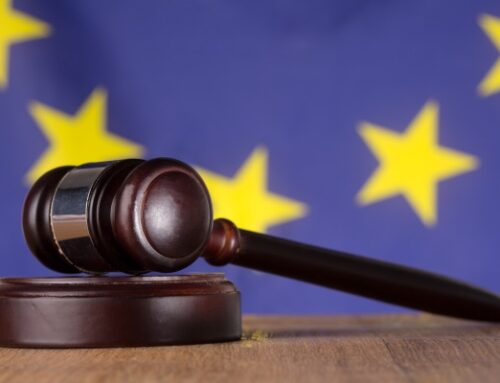Detlef Schmuck warns: “The EU is developing into a digital surveillance state.”
Hamburg, May 9, 2023 – “Under the guise of fighting crime, the EU is introducing ever closer surveillance of the population,” warns data security expert Detlef Schmuck, and is outraged: “The German government is even supporting this development towards a surveillance state instead of opposing it.” He points out that the German government apparently does not reject measures to scan private communications at EU level, although this is explicitly stated in the coalition agreement. It states that “we reject general surveillance obligations, measures to scan private communications and an identification obligation”. “At least on this point, the coalition agreement is not worth the paper it is written on,” rages the data security expert.
What Julian Assange and Edward Snowden fought for
Detlef Schmuck is appalled: “In an increasingly digital world, private communication without government spying is a fundamental civil right. But instead of protecting this right, the EU is apparently going to great lengths to trample it underfoot and is being more or less openly supported by the German government.” Detlef Schmuck is co-author of the book “Widerstand gegen die digitale Überwachung – Wofür Julian Assange und Edward Snowden kämpften” (ISBN 978-3-947818-93-8), published in 2022, in which he warned of the excesses of state surveillance.
The expert clarifies: “If there is a concrete case of suspicion, the state must of course intervene. But the EU’s course envisages obliging providers of digital communication services to permanently monitor users without any reason whatsoever. The Federal Constitutional Court already showed where this permanent spying can lead in a ruling on December 15, 1983.
Resistance to digital surveillance
The book “Widerstand gegen die digitale Überwachung” (“Resistance to digital surveillance”) states:
The Federal Constitutional Court showed great foresight in a ruling on December 15, 1983, in which it postulated a fundamental right to informational self-determination. The court based its ruling on the threat to the free constitutional order posed by data collection without the control of the person concerned under the conditions of modern information technology. In particular, the court pointed out the danger of panoptism. This little-known term, which was introduced in the middle of the last century by the French philosopher Michel Foucault, describes the phenomenon of a society becoming increasingly uniform as a result of surveillance and control mechanisms. Fourcault speaks of a social conformity of the individual. Michel Foucault writes: “The person who is subjected to visibility and knows this takes on the coercive means of power and plays them out against himself; he internalizes the power relationship in which he simultaneously plays both roles; he becomes the principle of his own subjugation.”
Significantly, he coined the term “Panoptimus” (incidentally based on the architectural design of a perfect prison, the “Panopticon”, by the English philosopher Jeremy Bentham) long before the ubiquitous digital surveillance of today. Fourcault notes the phenomenon of the increasing uniformity of society since the 18th century. School, military service and the adaptation of the individual to a predetermined working environment promoted by the rise of capitalism lead to a standardization of society in which conformity to norms becomes more important than one’s own individuality.
It is apparently enough if we have to expect to be spied on and evaluated, regardless of whether someone is actually watching, listening or reading. The potential surveillance alone leads most people to adapt their behavior to the normative expectations. Over a longer period of time, this leads to an internalization of the expected norms. The person who sets the norms – regardless of whether it is the state or a company – generally no longer has to exert any coercion to ensure that the norms are adhered to. We internalize the rules if we are only given them long enough and are aware of the danger that we may be constantly monitored, and we then adhere to these norms “all by ourselves”.
The Federal Constitutional Court derived its ruling on the fundamental right to informational self-determination from this. “Anyone who does not know or cannot influence what information about their behavior is stored adapts their behavior out of caution. This not only impairs individual freedom of action, but also the common good, as a free democratic community requires the self-determined participation of its citizens,” the judges at Germany’s highest court ruled.
The central point reads as follows: “A social order and a legal system that makes this possible would not be compatible with the right to informational self-determination if citizens could no longer know who knows what about them, when and on what occasion. Anyone who is unsure whether deviant behavior will be noted at any time and permanently stored, used or passed on as information will try not to attract attention through such behavior. … This would not only impair the individual’s chances of development, but also the common good, because self-determination is an elementary functional condition of a free democratic community based on the ability of its citizens to act and participate. It follows from this: Under the modern conditions of data processing, the free development of personality presupposes the protection of the individual against the unlimited collection, storage, use and disclosure of their personal data. This protection is therefore covered by the fundamental right of Art. 2 para. 1 in conjunction with Art. 1 para. 1 GG. In this respect, the fundamental right guarantees the power of the individual to determine the disclosure and use of their personal data themselves.”
Detlef Schmuck complains: “Today’s politicians are apparently unaware of this ruling by the Federal Constitutional Court and the background to it, or are deliberately ignoring it. In any case, the EU Commission seems determined to abolish all privacy in digital communication in Europe and the German government is acting as a stirrup for this digital prison policy.”
Orwell dictate binding in the EU
In 2022, the two EU Commissioners Dubravka Šuica (Demography) and Ylva Johansson (Home Affairs) presented an EU-wide monitoring system controlled from Brussels for emails, data exchange services such as TeamDrive, iMessage, WhatsApp and other messengers with reference to the sexual abuse of children. The so-called “EU Center against Child Abuse” is intended to force online services to check users’ communications for prohibited content without any gaps. In the 125-page draft, the Commission “goes to great lengths to leave no gaps”, analyzes data security expert Schmuck. Providers who do not submit to the “Orwellian dictate” are to be banned in Europe. He says: “By 2023, it will be clear that Germany is not seriously resisting this Orwellian nightmare.”
Schmuck considers the EU Commissioners’ claim that around 85 million images showing sexual violence against children can be found on the internet every year to be “deeply misleading”. He says: “Every crime is bad, those against children are particularly shameful. But to place over 500 million Europeans under general suspicion for this reason is just as reprehensible. Anyone who opposes this is almost automatically placed in a corner, as if they are trivializing or even defending abuse.”
TeamDrive is regarded as “secure sync & share software made in Germany” for storing, synchronizing and sharing data and documents. It is based on end-to-end encryption, which ensures that only the user himself can read the data – neither TeamDrive nor any authority in the world can decrypt the data. This technical and legally binding security is appreciated by over 500,000 users and more than 5,500 companies from all sectors, from industry and healthcare to law firms, business and tax consultancy and public administration. TeamDrive ensures that all data is stored exclusively on servers in Germany and guarantees compliance with German data protection legislation. TeamDrive supports Windows, Mac OS, Linux, Android and iOS. The newly added Hornetdrive service further expands this position.





